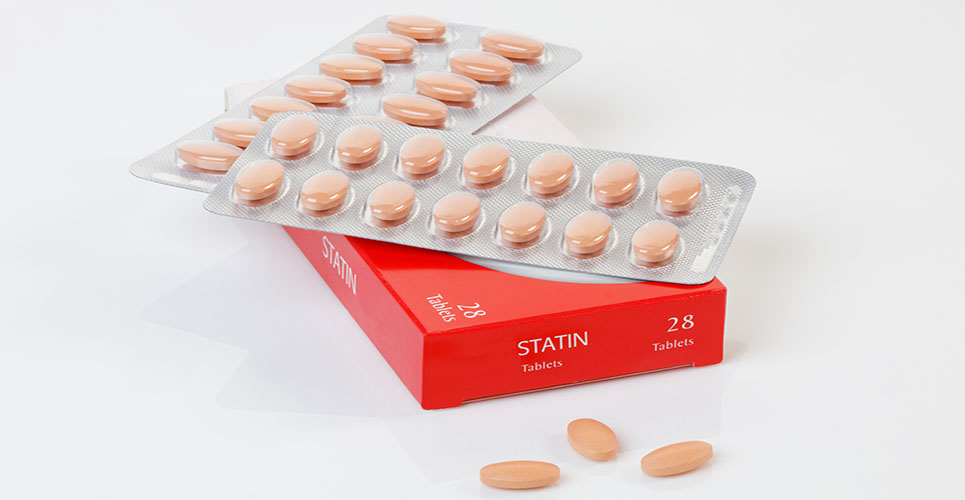Amgen has announced that adding Repatha® (evolocumab) to optimised statin therapy resulted in statistically significant regression of atherosclerosis in patients with coronary artery disease (CAD).
The detailed results from the GLAGOV Phase III coronary intravascular ultrasound imaging trial were presented at a Late-Breaking Clinical Trials Session of the American Heart Association (AHA) Scientific Sessions 2016 and simultaneously published in the Journal of the American Medical Association.
Amgen has announced that adding Repatha® (evolocumab) to optimised statin therapy resulted in statistically significant regression of atherosclerosis in patients with coronary artery disease (CAD).
The detailed results from the GLAGOV Phase III coronary intravascular ultrasound imaging trial were presented at a Late-Breaking Clinical Trials Session of the American Heart Association (AHA) Scientific Sessions 2016 and simultaneously published in the Journal of the American Medical Association.
The GLAGOV study evaluated whether Repatha, a proprotein convertase subtilisin/kexin type 9 (PCSK9) inhibitor for the treatment of certain patients with elevated low-density lipoprotein cholesterol (LDL-C) would modify atherosclerotic plaque build-up in the coronary arteries of patients already treated with optimised statin therapy, as measured by intravascular ultrasound (IVUS) at baseline and week 78.
“The cardiovascular community began conducting imaging studies with LDL-C therapies to measure slowing of atherosclerotic disease progression. This study shows that maximal LDL-C reduction with Repatha can actually regress coronary atherosclerotic disease compared to statins alone,” said Sean E Harper, MD, executive vice president of Research and Development at Amgen. “In fact, nearly two-thirds of patients on Repatha in this trial, the vast majority of whom were already on high to moderate intensity statin therapy at baseline, experienced a reduction in plaque burden.”
The study met its primary objective showing that treatment with Repatha resulted in a statistically significant regression from baseline in percent atheroma volume (PAV), which is the proportion of arterial lumen occupied by plaque. Patients in the Repatha arm experienced a 0.95% decrease versus baseline in PAV compared with an increase of 0.05% versus baseline in patients receiving optimised statin therapy plus placebo (Repatha arm p<0.0001; placebo arm p=0.78). The difference between the two comparators was statistically significant (p<0.0001). In addition, adding Repatha yielded plaque regression in PAV for a greater percentage of patients than for those receiving placebo (64.3% versus 47.3%, respectively, p<0.0001). At baseline, 98% of patients in both arms were on high to moderate intensity statin therapy.
Patients in the Repatha arm experienced a mean decrease in normalised total atheroma volume (TAV), which is a measure of plaque volume, of 5.8mm³ compared with 0.9mm³ seen in the placebo arm (Repatha arm p<0.0001; placebo arm p=0.45). The difference between the two comparators was statistically significant (p<0.0001). Additionally, adding Repatha yielded plaque regression in TAV for a greater percentage of patients than placebo (61.5% versus 48.9%, respectively, p=0.0002).
“Based on previous studies, we did not know if GLAGOV would show additional plaque regression at LDL-C levels below 60mg/dl,” said Stephen J. Nicholls, MD, PhD, professor of Cardiology and deputy director, South Australian Health & Medical Research Institute, Adelaide, Australia. “One of the most compelling results from GLAGOV is the continued reduction of plaque at LDL-C levels well below commonly accepted thresholds.”
At baseline, patients had a mean LDL-C of 92.5mg/dl across both treatment arms. During 78 weeks of treatment, the time-weighted mean LDL-C level was 36.6mg/dl in the Repatha arm, which represents a reduction of 59.8%, compared with 93.0mg/dl in the placebo arm. At week 78, the mean LDL-C in the Repatha arm was 29mg/dl, which represents a 68.0% decrease from baseline, and in the placebo arm was 90mg/dl.
An exploratory analysis evaluated the level of plaque reduction achieved in the 144 patients with baseline LDL-C levels below 70mg/dl (the lowest treatment target among the current global guidelines). In this analysis, these patients experienced the greatest decrease in plaque burden from baseline (change in PAV) with Repatha compared with placebo (-1.97% versus -0.35%, respectively, p<0.0001). In addition, more than 80% of patients in this subset experienced plaque regression (by change in PAV) with Repatha (81.2% Repatha; 48.0% placebo, p<0.0001).
No new safety concerns were identified in the GLAGOV trial. The incidence of treatment-emergent adverse events was comparable among both groups (67.9% Repatha; 79.8% placebo). Adverse events of clinical importance reviewed in this study included myalgia (7.0% Repatha; 5.8% placebo), new diagnosis of diabetes mellitus (3.6% Repatha; 3.7% placebo), neurocognitive events (1.4% Repatha; 1.2% placebo) and injection site reactions (0.4% Repatha; 0.0% placebo). In the GLAGOV study, binding antibodies were rarely observed (0.2% [1 patient] in the Repatha-treated arm) and no patients tested positively for neutralising antibodies.
Although the study was not powered to assess effects on cardiovascular events, an exploratory analysis revealed that positively-adjudicated major cardiovascular events occurred in 12.2% of patients receiving Repatha and 15.3% in those receiving placebo. The majority of adjudicated events were coronary revascularisations (10.3% Repatha; 13.6% placebo), followed by myocardial infarction (2.1% Repatha; 2.9% placebo). All other adjudicated cardiovascular events occurred in ≤0.8% of patients in each treatment group.
